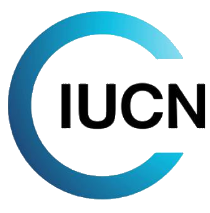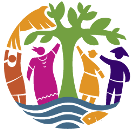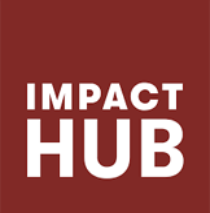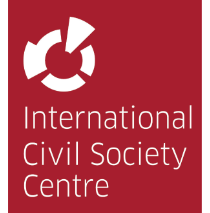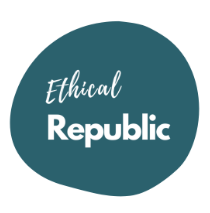Tobias Arhelger / AdobeStock
November 2023
Bruno Lacey, Programme Manager for Impact Hub, ran the Future of Conservation NGOs Innovation Challenge incubation and co-learning programme alongside the Unearthodox team. He reflects here on being part of the process.
Reflections on Redesigning ConservationCameraCraft / Adobe Stock
September 2023
This Q&A with Samirah Siddiqui and Tasnim Elboute is the fourth in a series with our Future of Conservation NGOs innovation challenge winners. Project In/Visibility seeks to challenge the dominant conservation narratives by introducing new perspectives and lived experiences from the very heart of communities.
Amplifying underrepresented voices 10'000 Hours / Getty Images
August 2023
This Q&A with Lauren Evans is the third in a series with our Future of Conservation NGOs innovation challenge winners. Through her transformative work with Human Nature, Lauren Evans is spearheading a conservation revolution.
Connected conservationAugust 2023
This Q&A with Ilias Papagiannopoulos and Sofia Petridou is the second in a series with our Future of Conservation NGOs innovation challenge winners. Team Kyklos is pushing boundaries by challenging the status quo in urban problem solving with an emphasis on circularity, equality and social inclusion.
Towards a circular urban neighbourhoodfrancovolpato / Adobe Stock
July 2023
This Q&A is the first in a series with our Future of Conservation NGOs innovation challenge winners. See how Anna Haw is challenging the status quo through the H4H initiative, a partnership programme between the Peace Parks Foundation and Conservation International.
Locally focused, locally ledJuly 2023
In this insight piece Sudha Iyer, Communications Consultant for the Future of Conservation NGOs project, asks how the conservation sector can collaboratively build a future that is equitable and regenerative.
How to challenge the conservation status quoApril 2023
In this interview Eva Rehse, Director of Strategy and Global Collaboration at the Global Greengrants Fund, shares her views on understanding interconnectedness, embracing complexity and redesigning the future of conservation funding.
Read the interviewDecember 2022
The Luc Hoffmann Institute participates in the United Nations Biodiversity Conference (COP15) in Montreal, hosting and co-hosting several events on the future of conservation and how to collectively find pathways to put inclusivity and interdependence at the heart of conservation.
November 2022
In this insight piece, Saba Sean Thackurdeen, a conservationist and anthropologist explores ideas on how the conservation sector can confront its uncomfortable colonial past and address it in its modern-day legacy.
Read the insight pieceNovember 2022
The Luc Hoffmann Institute participated in a learning festival hosted by the ‘Re-Imagining the INGO (RINGO)’ project. Along with Eva Rehse, Director of Strategy and Global Collaboration at Global Greengrants Fund, we asked, “Is the environmental and conservation sector ready to shift power and transform?”
July 2022
The Luc Hoffmann Institute, together with the IUCN Commission on Environmental, Economic and Social Policy (IUCN-CEESP), Impact Hub and the winners of the Future of Conservation NGOs global innovation challenge collectively participate in an incubation and co-learning programme to further develop the winning ideas with the aim to operationalise transformative change.
June 2022
Nine winners of our innovation challenge are announced after a rigorous evaluation process involving a review by a diverse panel with a range of expertise. The winning ideas represent a wide array of conservation efforts – international, local, rural, and urban – from coastal communities in Maldives to the urban population in Greece.
The Future of Conservation NGOs Innovation Challenge – Winning IdeasMay 2022
What is the future for conservation NGOs? Is there a future? If so, what kinds of roles, mandates, organisational cultures and capabilities do the conservation NGOs of the future need to embrace? Our Head of Programme, Anca Damerell, is a guest on the NGO Soul + Strategy podcast (episode #38) with Tosca Bruno-van Vijfeijken discussing what the future of conservation looks like.
Listen hereMay 2022
The Future of Conservation NGOs Innovation Challenge seeks innovative ideas for transformative change. A webinar is co-hosted by the Luc Hoffmann Institute along with IUCN-CEESP and Impact Hub, featuring an informational session about the innovation challenge and live Q&A, as well as short inspirational talks by Martin Kalungu-Banda (Presencing Institute), Ameyali Ramos (Deputy Chair, IUCN-CEESP), Bruno Lacey (Global Associate, Impact Hub) and Anca Damerell (Head of Programme, Luc Hoffmann Institute).
Watch the full webinarApril 2022
How might we reimagine conservation work to effectively respond to and help shape a rapidly changing world? What are the trends impacting conservation work? What are the barriers to and enablers of change in conservation NGOs?
Together with the authors of the analysis report “Exploring possible futures of conservation NGOs”, the Luc Hoffmann Institute hosts a panel discussion that delves into the findings of the report, examines these questions, and presents 15 potential roles for conservation NGOs, each one based on a possible future state of the world.
Exploring possible futures for conservation NGOsMarch 2022
The Luc Hoffmann Institute publishes “Exploring Possible Futures for Conservation NGOs‘’, a report examining the trends impacting and shaping conservation work and the barriers to and enablers of change in the conservation sector. It presents 15 possible futures and related roles for conservation NGOs intended as a starting point for radical thinking and discussions.
Exploring Possible Futures for Conservation NGOsDecember 2020
A reflective journey on what the future of conservation NGOs could look like begins at the Luc Hoffmann Institute.
The idea is inspired by various projects already incubated by the Luc Hoffmann Institute and their insights into some of the key challenges for the conservation sector, like the need to reimagine existing relationships and power structures as well as to find new engagement and funding models.
